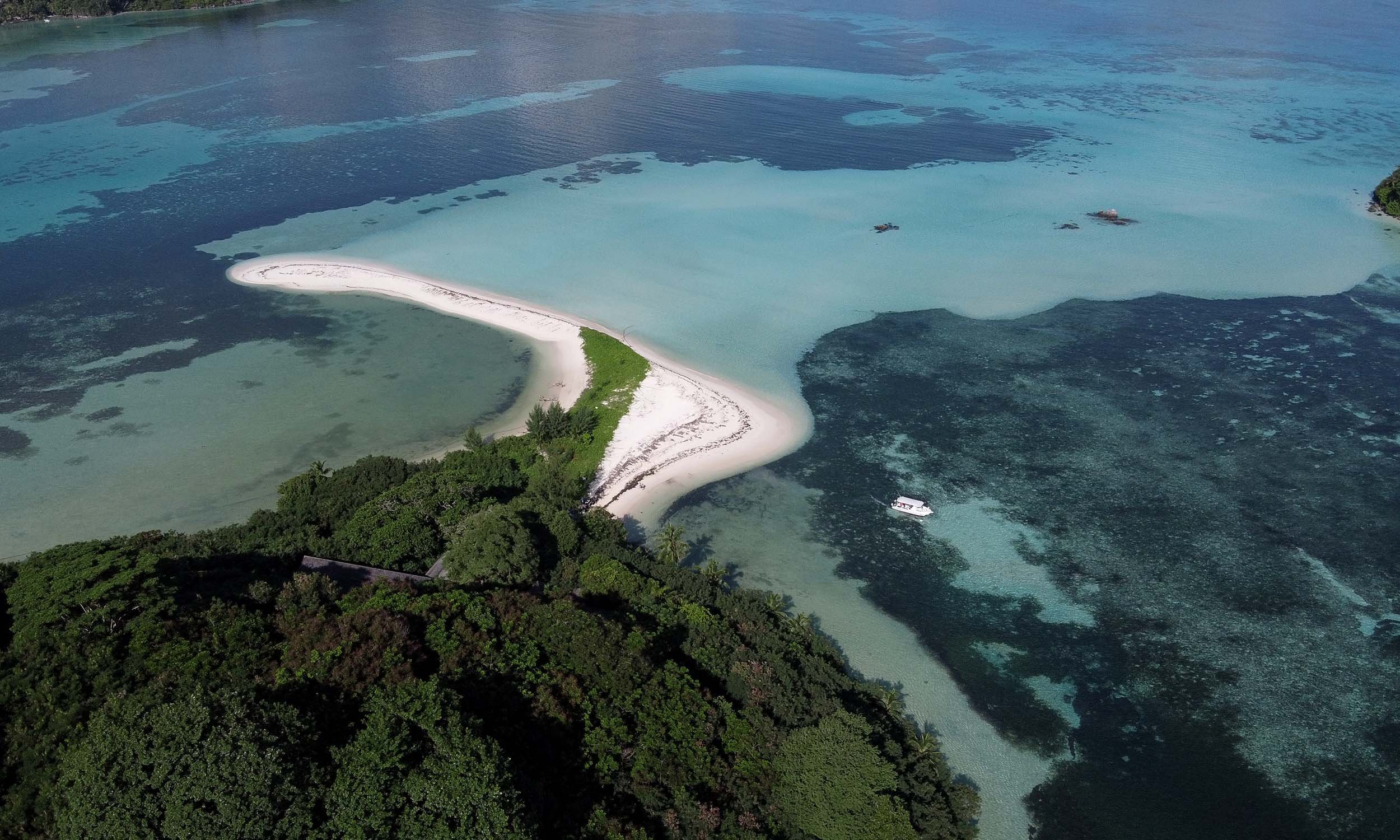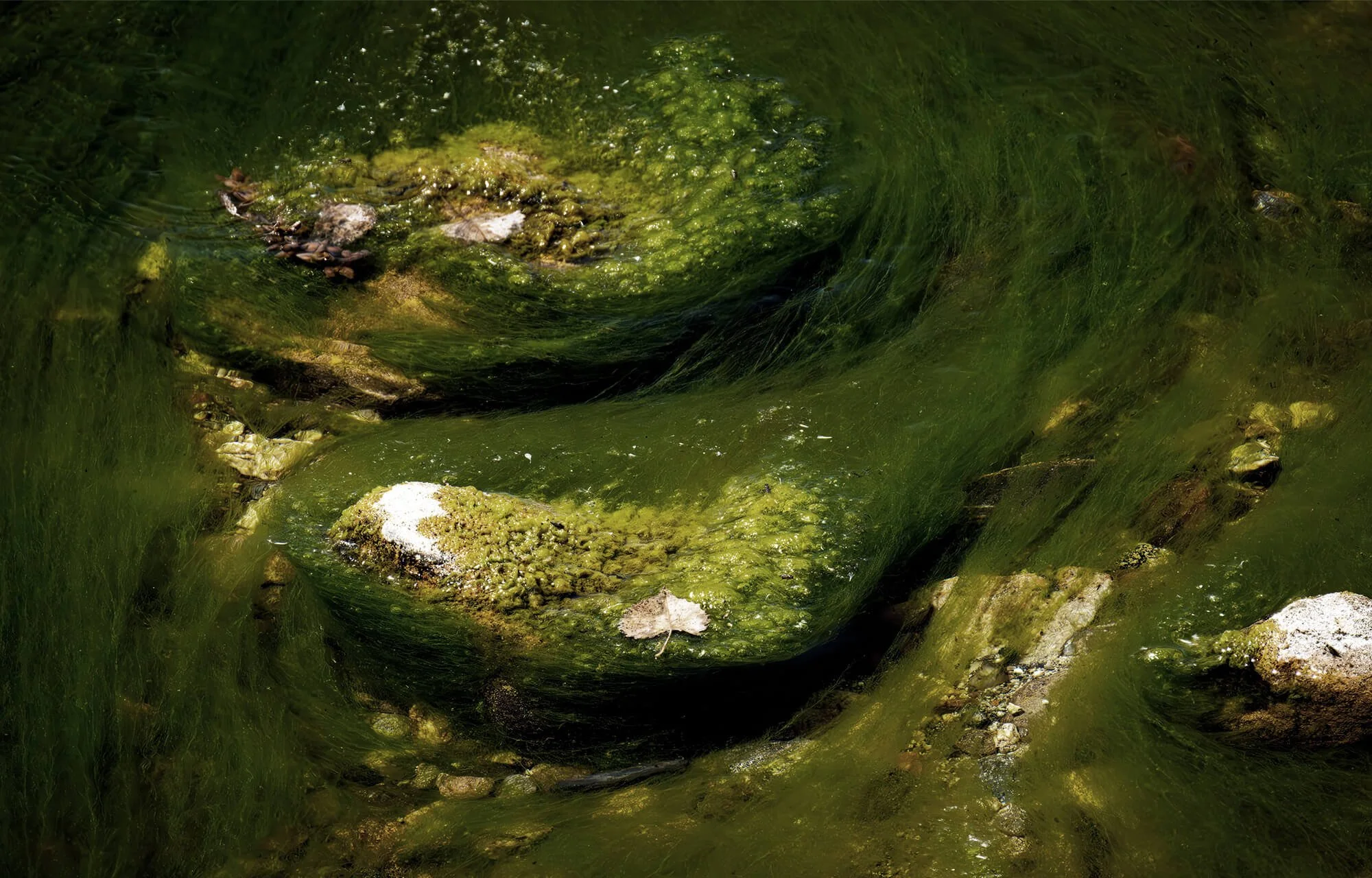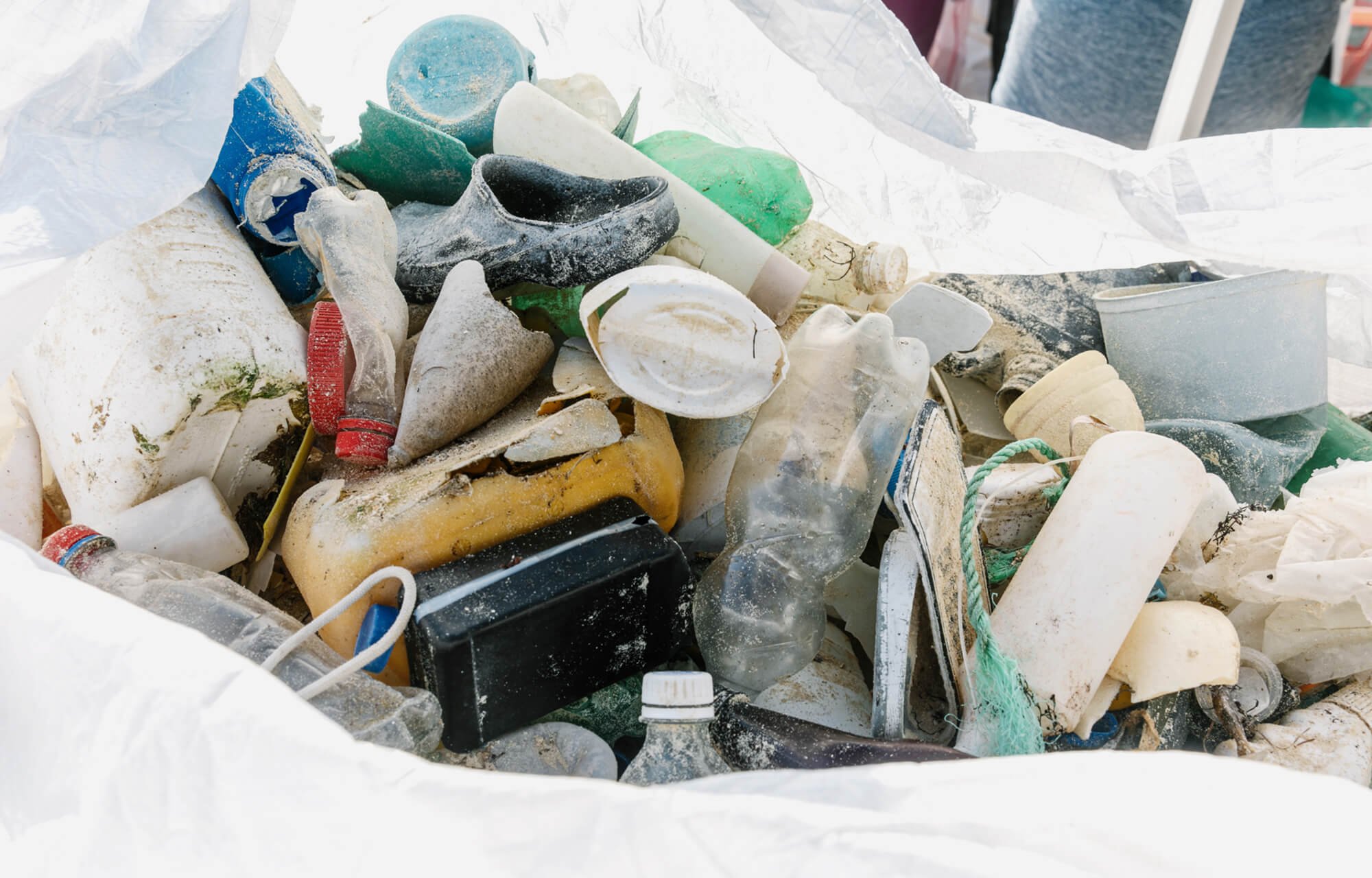Michael Muller's Antidote to the Jaws Effect
After working with the world’s most influential celebrities and renowned publications, where do you turn for your next dose of humility? Photographer Michael Muller discovered a subject that would leave him speechless and somewhat uncomfortable, at least at first. He was about to shoot presumably the most dangerous and untamable subject of his entire career. Although the setting should have been familiar (bright flash lights, huge cameras), there was one major exception: this time the studio was located several meters beneath surface level — to be precise, in the wild and vast ocean.
To replicate the lighting conditions of a land-based studio, Michael used high-powered underwater lighting built exclusively for his purposes. Working against the pressure of a tight timeline, Michael and his team were unable to test his patented creation before taking it on the planned dive. Yet any initial anxieties were soon quieted as adrenaline levels spiked to an all-time high; in order to capture the sharks in their entirety, he would have to perform the shoots in cage-less dives.
As spectacular and terrifying as the photos’ subjects appear, the series SHARKS sheds light on a widely misunderstood animal in hopes of righting unjustified prejudices and fears. Often it’s the unknown that scares us most, therefore Michael shares his experiences and takes viewers on a journey into the undiscovered, forbidden domain of one of the oldest animals on Earth. Changing perceptions through a shift in perspective, he invites us to enjoy the beauty and to open our minds to a closer relation with the wild oceans. Michael captures the sharks’ majestic and proud appearance, elegant movements, and mesmerizing looks in ways they have never been seen before.
Sharks are not the cruel killing monsters we once thought, but a highly endangered species that needs our protection. Hunted and killed by the millions for their fins and in some places nearly driven to extinction, these apex predators are far more likely to be killed by humans than humans are to be attacked by them. We need them alive and healthy in their habitat. Not in a bowl of soup.
Now more than ever, we need to confront these humbling truths. Michael Muller’s shark photography commands your attention for the sake of conservation.
You were able to overcome a great fear of sharks you had since being a kid. How did that transformation happen?
I had a passion and love for sharks as a child and started scuba diving and snorkeling at the age of 8 in the Persian Gulf, where my father had been transferred for four years. Growing up in Saudi Arabia allowed me to travel to 55 countries before I entered junior high. At some point, that passion got coupled with a huge fear after watching Jaws. I think everyone from that era was affected by the film and no one in a positive way. It was obviously fictional and so far from the truth about how great whites behave, but that didn't matter. I don't think I'm alone when I say I took that film as fact and thought for most of my life that great whites were out to kill us at any chance they get. Only after facing that fear 11 years ago and finally taking the journey to go swim with them, and begin to document them, did my perception change. It actually started to shift immediately after I witnessed my first one and it swam by me and we locked eyes. The prejudice started to unravel like a loose sweater and that fear morphed into a fascination and deep connection with the animal.
After years and years and hundreds of hours studying shark behavior — only then was I able to venture out of the protection of a cage and swim amongst these majestic animals and have a complete transformation. Why do I do this, some people ask. 100% to try and help these animals and show people they really aren't the boogeymen so many still believe them to be. I have the utmost respect for them and am very aware they are wild animals, evolution’s perfection when it comes to the perfect hunting machines. They are not something to get cocky with and/or have an ego around, or you will get humbled in the worst way and set us back to the days of Jaws.
How would you compare this fear of the predator with fears for the future of our planet? Can you compare the two?
Do I compare my fear of sharks with the state of our planet? No, not even close. Deep inside I knew something was amiss with my view of sharks; when it comes to our planet, I know my fears are grounded in facts. When I stop and look at what's happening, I can get very dark and depressed very quickly, so I try not to do that too often — or when I do start and catch myself, I try to focus on solutions and what can be done. I often wonder if people are that robotic and don't see what's happening. I do know people feel overwhelmed, it's all just too much. I used to think that way too, and then the words of Paul Watson rang in my skull: "What are you doing about it?" He replied to someone in the audience at a screening of The Cove when that person asked him what he was going to do about saving blue whales. So I ask myself, what can I do to help?
Does taking action yourself help alleviate those fears?
That's what I do. It’s all I can do so my daughters or their future children might have a chance to dive in an ocean that still has some of the life I get to see today. The truth is, it's scary as hell what's going on in our oceans and what little is being done to stop, let alone curb it.
How have your encounters with sharks changed your mind in terms of how small and unremarkable humans are in comparison to such a powerful species? To what extent do you think the feeling these underwater encounters evoke in you can be conveyed through your photography?
I don't know if sharks have impacted me in the power of Mother Nature as much as seeing Haiti in the aftermath of the earthquake and hurricanes has — or being in both San Francisco for the quake of the late ‘80s and in Los Angeles in the ‘90s, or even watching the news on any given day and seeing Mother Nature react to our actions. I know without question she can smack us off this planet as fast as a dog shakes a flea off its back. I watched Al Gore’s Inconvenient Truth and in it you learn there's been 13 or so ice ages on this planet, and it made me think, oh, yeah, we’ve been here 13 times before and messed it up and here we go again [this time, with humans]. Reboot. Just like at the end of The Matrix when Neo meets the creator and he says, you've done this before and keep doing the same thing. We don't learn much from history as a species with the capacity for memory, do we? We are not so far from that cave we crawled out of not too long ago, is the truth of it all.
There are widely-spread misconceptions about sharks being cruel and unpredictable animals. Do you think false prejudices due to lacking knowledge are a general problem in regard to other endangered wildlife species? Might this be a reason why we find it so hard to connect with nature?
Well, that is the reason point blank. We are so disconnected from nature as a country and as a planet in general. As you read this, stop right now and ask yourself when was the last time you were out on the ocean, in a forest or the desert for more than a couple of hours, and not at a hotel? When was the last time you slept under the stars? When was the last time you saw a wild animal? If you’re honest and/or like most, I know it's been awhile, and if you have done it, when was the previous time before that? We are urban dwellers who connect with nature on Discovery Channel once in awhile, or see it in a magazine. That is not connecting. If you’re not in the ocean or ever amongst animals, you’re only going to go off what you see on TV or in magazines, or maybe from someone like myself who is telling you that your shark beliefs are incorrect — and you have probably already decided I'm crazy, so anything I say must be a bit crazy, too. We have a judge, jury, and executioner in our minds that makes all these decisions to keep us safe, or so we think. And "safe" is relative.
Because it is nearly impossible to direct sharks for the right shot, you had to adapt yourself much more to the subject in front of you than you have to when shooting humans. Did this experience change the way you work? Did it teach you to be more attentive for non-verbal communication?
I've shot so much varied subject matter in the last 30 years that I've always remained flexible and teachable, so when I started working with sharks I adapted to their environment. I cannot talk to sharks, but what I found I could do is use my team and the bait, which the sharks avoided like the plague, to get one to swim where I needed it to go. All they want is the fish we are feeding them, so at the end of the day I have a lot more control than you might think.
It is truly admirable how you utilize your talent and reputation to point to the very serious issue of shark conservation. It is to be hoped more people will join forces. What is your call to action?
My call to action is pretty simple. It starts at home. What is within your bubble that you can start helping with? Where can you cut out plastics? When you’re at the beach, don't walk by that bottle and leave it for someone else. Pick it up. If we all do our part, we can make change happen. If you want more or specific causes, go do your homework and find organizations that actually use the money donated on the ground, or do something that is dear to your heart. Like the saying goes, we only protect what we love. Godspeed to you all.

















